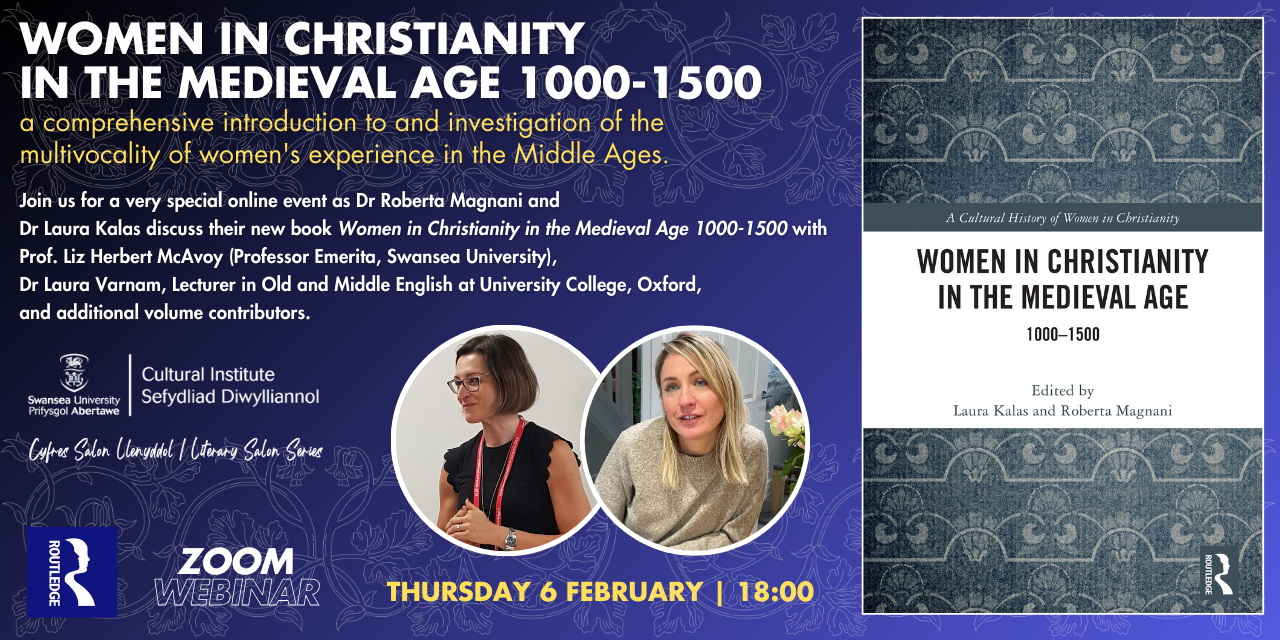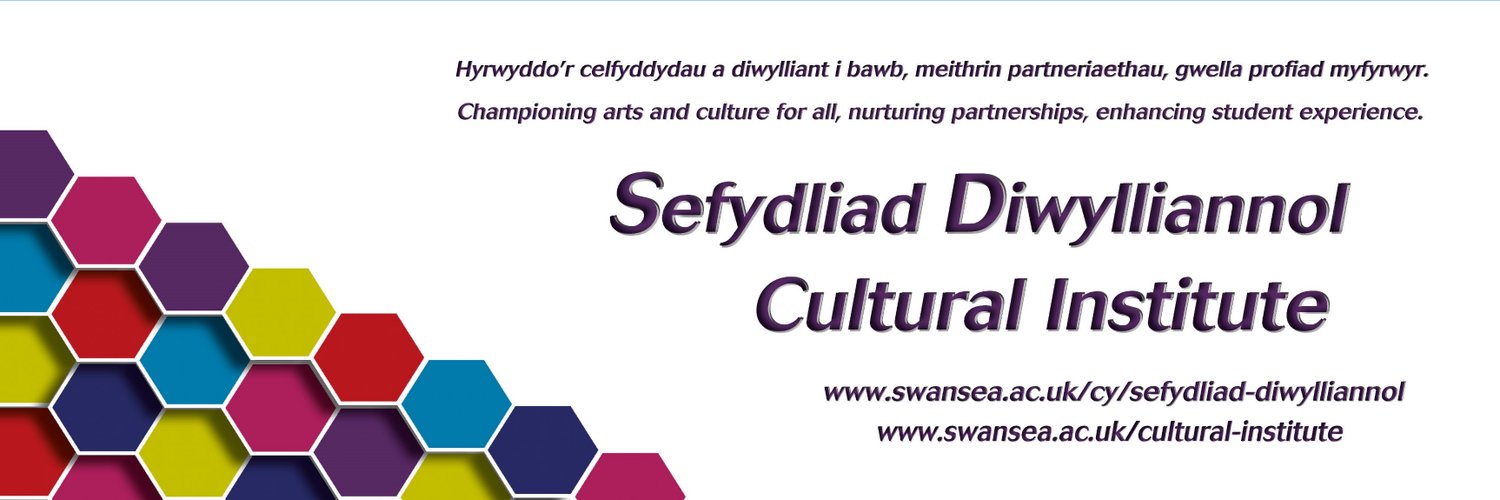
Registration is required
Register at: https://bit.ly/wicmedieval
Dyniaethau a'r Gwyddorau Cymdeithasol - Faculty of Humanities and Social Sciences

This event is part of the Sefydliad Diwylliannol - Cultural Institute series
Dr Roberta Magnani (Swansea University)
Dr Laura Kalas (Swansea University)
Prof. Liz Herbert McAvoy (Professor Emerita, Swansea University)
Dr Laura Varnam, Lecturer in Old and Middle English at University College, Oxford
Dr Roberta Magnani is Senior Lecturer in Medieval English Literature here at Swansea and she is the President Emerita of the Society for Medieval Feminist Scholarship. Her research interests lie in late medieval literary and religious culture. Her publications include queer readings of manuscripts, skin and the trope of the walled garden. Her current project engages with medieval representations of Amazons, and more broadly, of racialised transmasculine individuals.
Dr Laura Kalas is Senior Lecturer in Medieval English Literature and co-director of the Medical Humanities Research Centreat Swansea University. She is the author of 'Margery Kempe’s Spiritual Medicine: Suffering, Transformation and the Life-Course' (2020) and co-editor of 'Encountering The Book of Margery Kempe' (2021). Her research focuses on medieval religious culture and especially writings by, and about, women, on medicine, materiality, and devotion.
From: 6 Feb 2025, 6 p.m.To: 6 Feb 2025, 7:30 p.m.
Location: Online Event - Please see description
Join us for a very special online event as Dr Roberta Magnani and Dr Laura Kalas discuss their new book 'Women in Christianity in the Medieval Age 1000-1500' with Prof. Liz Herbert McAvoy (Professor Emerita, Swansea University), Dr Laura Varnam, Lecturer in Old and Middle English at University College, Oxford, and additional volume contributors.
Book Synopsis:
This volume offers an investigation of the multivocality of women’s experience in the Middle Ages. In medieval Europe women saw their role in the Christian Church and society progressively confined to conflicting models of femininity epitomised by the dichotomy of Eve/Mary. Towards the end of the Middle Ages, women’s somatic spirituality influenced burgeoning modes of piety, which afforded women the space for an increased level of self-expression and authority. Ranging from philosophical and theological enquiry to education and art, as well as medical sciences and popular beliefs, the essays in this collection account for the complexities and richness of the conceptualisations and lived experiences of medieval Christian women.
Contact: Cultural Institute (Email: cultural-institute@swansea.ac.uk)
Website: https://bit.ly/wicmedieval
Event created by: m.t.hughes
